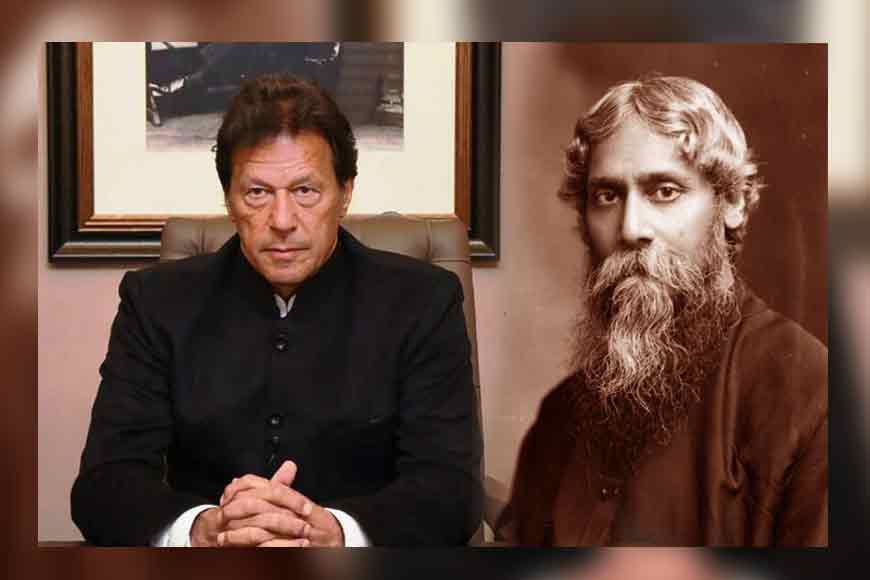Even Imran Khan needs Tagore for public administration!

Pakistan Prime Minister Imran Khan has become the centre of trolls after he posted a quote by Rabindranath Tagore on his official Twitter account, attributing it to another famous author Kahlil Gibran. He posted an inspirational quote that read, “I slept and I dreamed that life is all joy. I woke and I saw that life is all service. I served and I saw that service is joy.”
He had captioned the quote by saying, “Those who discover and get to understand the wisdom of Gibran’s words, cited below, get to live a life of contentment.” The quote actually belongs to Nobel Prize-winner Rabindranath Tagore. The original quote by Tagore is, “I slept and dreamt that life was joy. I awoke and saw that life was service. I acted and behold, service was joy.”
Tagore’s quotes on public life and administration seems to be relevant even today, after 150 years! Take for example the following quote: “We gain freedom when we have paid the full price...We live in the world when we love it…. We come nearest to the great when we are great in humility.” In reality Tagore’s political views exhibited a marked ambivalence — on one hand, he denounced European imperialism, occasionally voicing full support for Indian nationalists, on the other hand, he also shunned the Swadeshi Movement, denouncing it in his acrid September 1925 essay The Cult of the Charkha. In reaction to a July 22, 1904 suggestion by the British that Bengal should be partitioned, an upset Tagore took to delivering a lecture — entitled ‘Swadeshi Samaj’ that proposed an alternative solution: A self-help based comprehensive reorganization of rural Bengal. In addition, he viewed British control of India as a ‘political symptom of our social disease,’ urging Indians to accept that ‘there can be no question of blind revolution, but of steady and purposeful education.’
In line with this, Tagore denounced nationalism, deeming it among humanity’s greatest problems. ‘A nation, is that aspect which a whole population assumes when organized for a mechanical purpose, a purpose often associated with a selfishness that can be a grandly magnified form of personal selfishness.’ During his extensive travels, he formed a vision of East-West unity. Subsequently, he was shocked by the rising nationalism found in Germany and other nations prior to the World War II. Tagore thus delivered a series of lectures on nationalism; although well-received throughout much of Europe, they were mostly ignored or criticized in Japan and the United States.
Tagore also lashed out against the orthodox rote-oriented educational system introduced in India under the Raj. In his short story ‘The Parrot's Training,’ where a bird that ultimately dies is caged by tutors and force-fed pages torn from books, he ridicules the Western education system.









